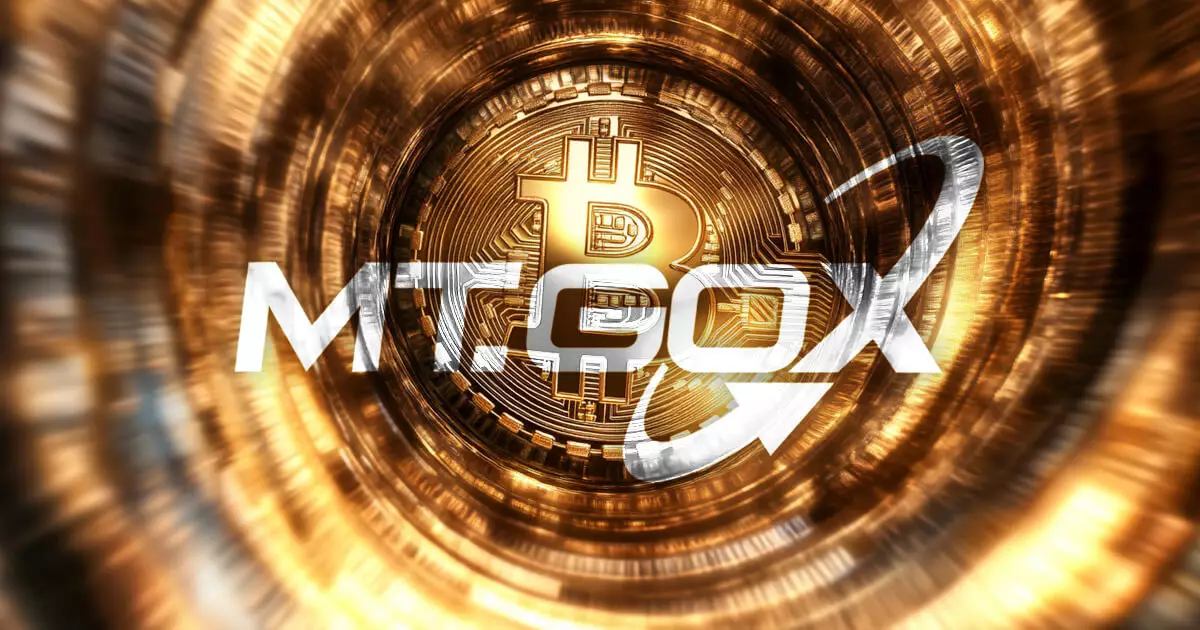In the ever-evolving landscape of cryptocurrency, few names resonate with controversy and intrigue as profoundly as Mt. Gox. Once the world’s largest Bitcoin exchange, Mt. Gox collapsed in 2014, leading to a loss of approximately 850,000 Bitcoin—a catastrophe still felt in the industry today. The ongoing saga of Mt. Gox reached a significant marker recently, with the exchange transferring over $2 billion worth of Bitcoin into new wallets, igniting a wave of speculation regarding market movements and creditor repayments.
On November 4, 2023, data from Arkham Intelligence revealed that Mt. Gox executed notable transactions that amounted to the transfer of 30,371 BTC to an unrecognized wallet identified as “1FG2C.” Following this, an additional sum of about 2,000 BTC was subsequently moved to another unknown address. Interestingly, these transactions indicate a prompt and decisive approach to managing outstanding assets. Despite these withdrawals, Mt. Gox retains a substantial amount—44,378 BTC, valued at approximately $3.04 billion. This retention could hint at a strategic plan to manage creditors’ claims and market reactions effectively.
In the aftermath of its infamous hack, Mt. Gox has devoted considerable resources toward repaying its creditors, a gesture that has not only captured the public’s attention but also impacted the overall crypto market. The payments, which include Bitcoin and Bitcoin Cash, are primarily processed through well-known platforms such as Kraken, Bitstamp, and BitGo. Just recently, Mt. Gox extended its repayment deadline to October 31, 2025. This extension indicates the complexity involved in compensating all affected parties fairly, underscoring the long-term implications of the exchange’s operational failures.
The recent activities of the Mt. Gox wallets, as highlighted by other analytics firms like SpotOnChain, raise questions about potential future market volatility. The transfer of 32,871 BTC over a few days suggests an intention to adjust holdings strategically, possibly in anticipation of upcoming market conditions. With a significant portion of these assets being funneled into wallets associated with major exchanges such as OKX and B2C2, analysts are left wondering whether this move hints at an impending sale or distribution event that could further influence the price dynamics of Bitcoin.
The story of Mt. Gox serves as a cautionary tale for the cryptocurrency industry, revealing not only the vulnerabilities inherent in digital finance but also the importance of robust security protocols. As the exchange navigates through its long-standing obligations to creditors and attempts to regain credibility, the crypto world watches closely, pondering how the fate of Mt. Gox might influence regulatory frameworks and consumer trust in decentralized finance. The mounting enclosure of funds and the inflammatory nature of market responses reinforce the ongoing dialogue regarding the need for accountability and transparency in cryptocurrency operations.
The recent Bitcoin transfers by Mt. Gox mark a critical juncture in its history, with ramifications that extend beyond its immediate financial dealings. This ongoing case reflects broader trends and challenges that the cryptocurrency market continues to face, hinting at a future where past mistakes must inform more secure and responsible practices.














Leave a Reply